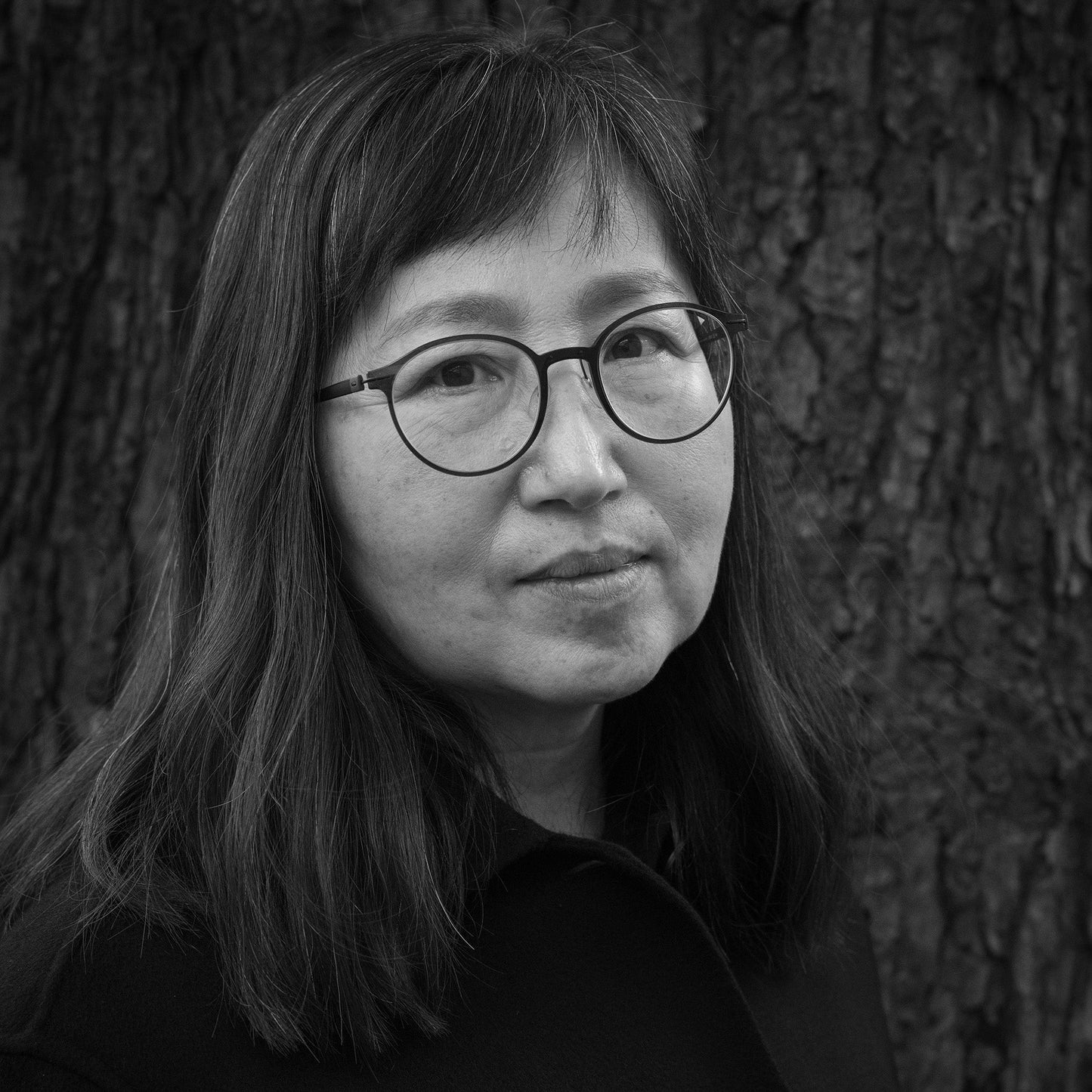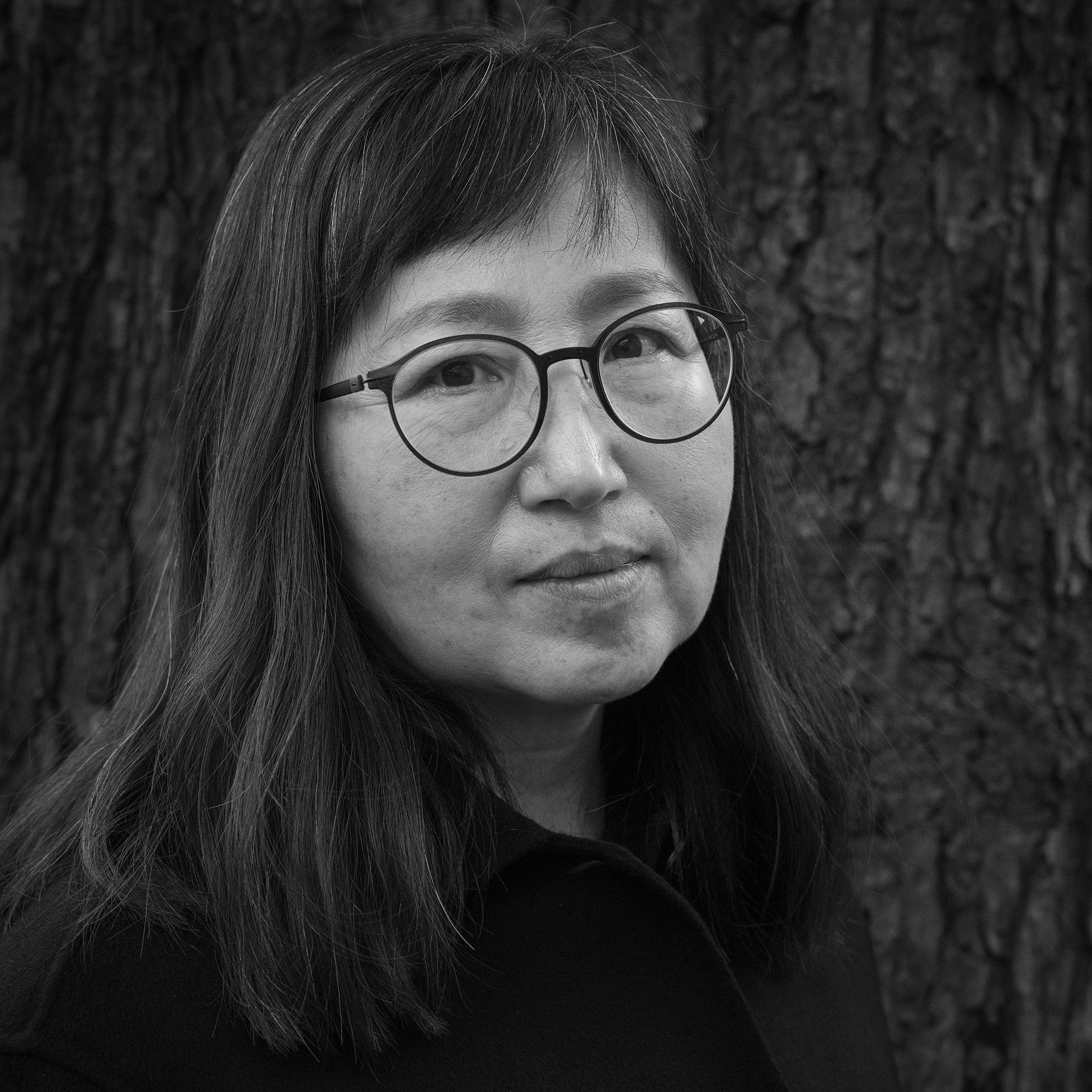-
Born in Seoul, South Korea, Don Mee Choi is the author of Mirror Nation (Wave Books, 2024), the National Book Award winning collection DMZ Colony (Wave Books, 2020), Hardly War (Wave Books, 2016), The Morning News Is Exciting (Action Books, 2010), and several pamphlets of poems and essays. She is a recipient of fellowships from the MacArthur, Guggenheim, Lannan, and Whiting Foundations, as well as the DAAD Artists-in-Berlin Program. She has translated several collections of Kim Hyesoon’s poetry, including Autobiography of Death (New Directions, 2018), which received the International Griffin Poetry Prize.
Photo credit: Dirk Skiba -
Reviews
Choi’s hybrid structure allows her, in some sense, to have it both ways—to look at her subjects while simultaneously, and paradoxically, showing that some subjects are just too big to see in full: war, your parents’ life before and without you, your government and its decisions.
Kathleen Rooney, The New York Times Sunday Book ReviewDuring the decade in which these books were being written and published, anti-immigrant and xenophobic politics have motivated a surge of right-wing populism and fascism around the globe, and especially in the West. But if “History is ever arriving” (49), as she writes in DMZ Colony, then other possibilities both remain and are still to be. This is a historiographical method that necessitates translating the given by creating other realities next to the one that exists. As Choi’s trilogy displays, this involves a combination of imagination and research, with the latter defined widely to include personal memory, while understanding that the personal is the result of history and its material conditions. This also entails the invention of new forms of expression to accompany the older ones in order to expand the range of what can be made visible and heard. Conversely, these innovative modes can be used to elude and become imperceptible to the modern nation-state’s endless classifications and categories according to race, gender, class, sexual orientation, and, in the colonies and neocolonies, human and not human. This isn’t a thought or aesthetic experiment; it’s a means of survival and thriving.
Alan Gilbert, e-flux Journal
Of this new generation of poets, Don Mee Choi is perhaps the most subversive.
William Lessard, Jacket2
Formally, Don Mee Choi is an inheritor of Theresa Hak Kyung Cha, whose seminal Dictee (1982) has had a major impact on contemporary innovative American poetry. Yet Choi innovates on Cha’s decades-old example. Choi’s work releases new-media energy; it moves at fiber optic speed as it to struggles to find terms for our 21st century experience of globalized media, especially as such media affects our sense of history, commodity, violence, politics, terror, and freedom.
Joyelle McSweeney, Montevidayo
Don Mee Choi writes about violence and injustice in modalities that are neither sentimental, obvious, or pornographic.
Forrest Gander
Her writing has showed me that discomfort is neither cruel nor condemnation, but a passageway towards freedom, or towards becoming feral, or freely frayed.
Christine Shan Shan Hou, Lit Hub
Choi reverses Seamus Heaney’s line that ‘hope and history rhyme’ on the far side of revenge: her historicising, her drawing attention to a need for revenge or a reckoning forgotten in mainstream US culture, sees translation and tragedy chime.
Dougal McNeill, Overland
To read the work of Don Mee Choi is to readjust our vision— not only of the modern world at war and violence sustained at borders, but also of how war and borders shape our language and percolate into the art that we see. Her poetry is one that will not be confined within the margins of a book, but spill into drawings, photographs, videos, and passports.
Sohini Basak, Wasafiri
Reviews of books by Don Mee Choi
DMZ Colony
Hardly War
-
Don Mee Choi's website
Poems
- Three Poems (at Lit Hub)
- “Diary of a Botanist” (in Trout)
- “The Hydrangean Candidate” (in The Spiral Orb)
- “From noon – to all surviving Butterflies” (in Everyday Genius)
- “Weaver in Exile” (in Le Petite Zine)
- “Diary of Return” (in THEthe Poetry)
- “I, Lack-a-daisy” (in Action Yes)
Translations
- Poems and essay by Yi Yon-ju (in Artful Dodge)
- Four poems by Kim Hyesoon (in Genius)
- Five poems by Kim Hyesoon (in The Ampersand Review)
- Four poems by Kim Hyesoon (in Modern Poetry in Translation)
- “By the River of Formalin – Day Thirty Three” by Kim Hyesoon (in Evening Will Come)
- Two poems by Kim Hyesoon (in The Journal Petra)
Essays
- “Darkness—Translation—Migration” (at The Poetry Foundation)
- “Womb 8691945” (in Evening Will Come)
Interviews
- PEN America, with Lauren Cerand
- The Pool
- Lantern Review Blog, with Wendy Chin-Tanner
- The Conversant, with H.L. Hix
- International Examiner, with Susan Rich
- BOMB, with Christian Hawkey
- The Margins, with Emily Yoon
Reviews of Translated Work
- “All the Garbage of the World, Unite!” by Sueyeun Juliette Lee (in Constant Critic)
- “Sorrowtoothpaste Mirrorcream” by Mia Yau (in Bookforum)
- “The Landscape's Gaze” by Dougall McNeil (in Overland Literary Journal)
- “A Feminist Ontology of Ooziness: On Kim Hyesoon” by Deborah Schwartz (in The Critical Flame) -
Audio
- Reading at the Hedreen Gallery in Seattle on February 3, 2012
- Reading at UCSD in 2012
- Reading at Brown University for the Writers on Writing Reading Series in 2015
- Reading from The Morning News Is Exciting (Action Books, 2010) at PennSound
Video
From the Displayed Words Project in Berlin:
Reading poems from The Morning News Is Exciting (Action Books, 2010):


